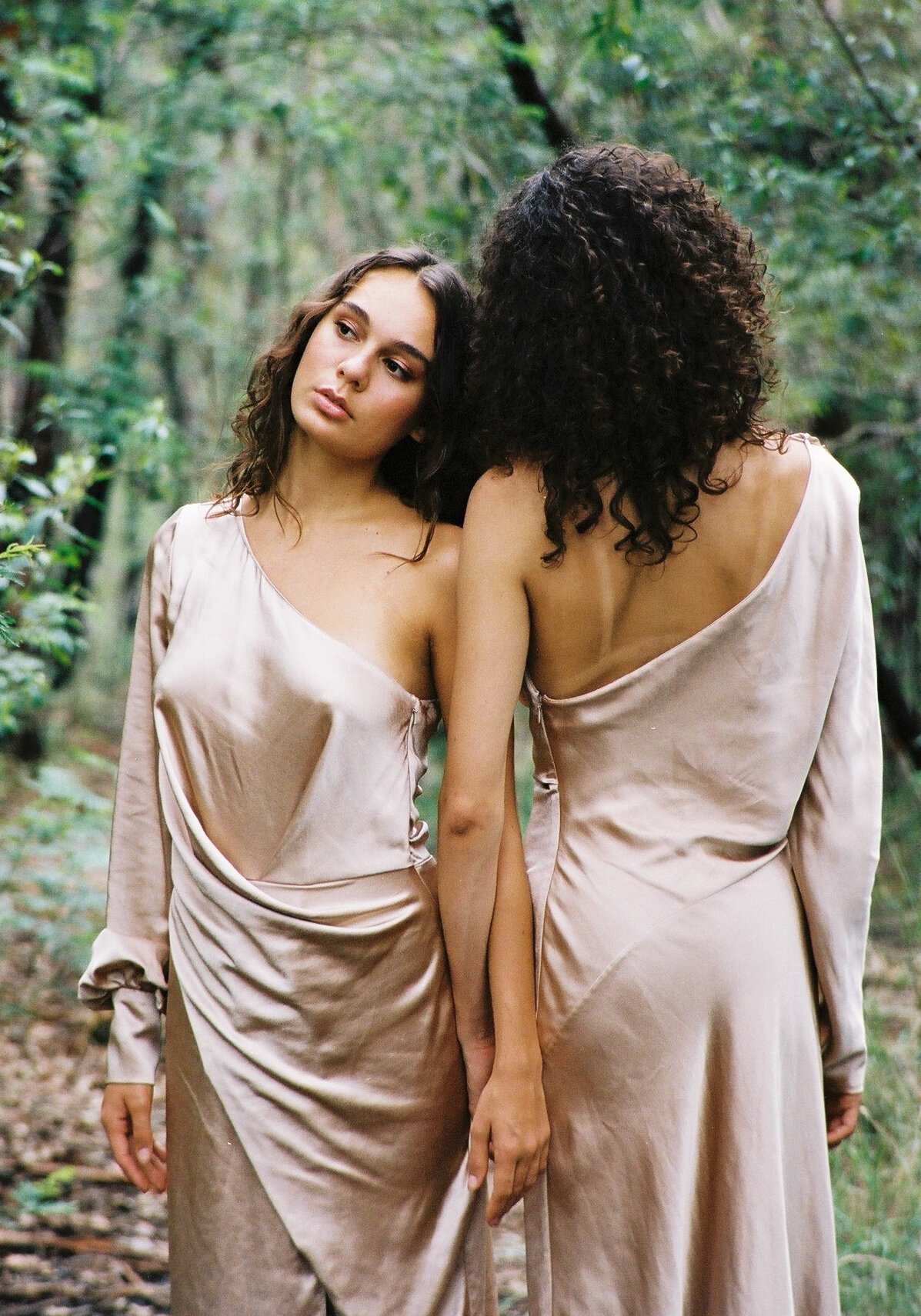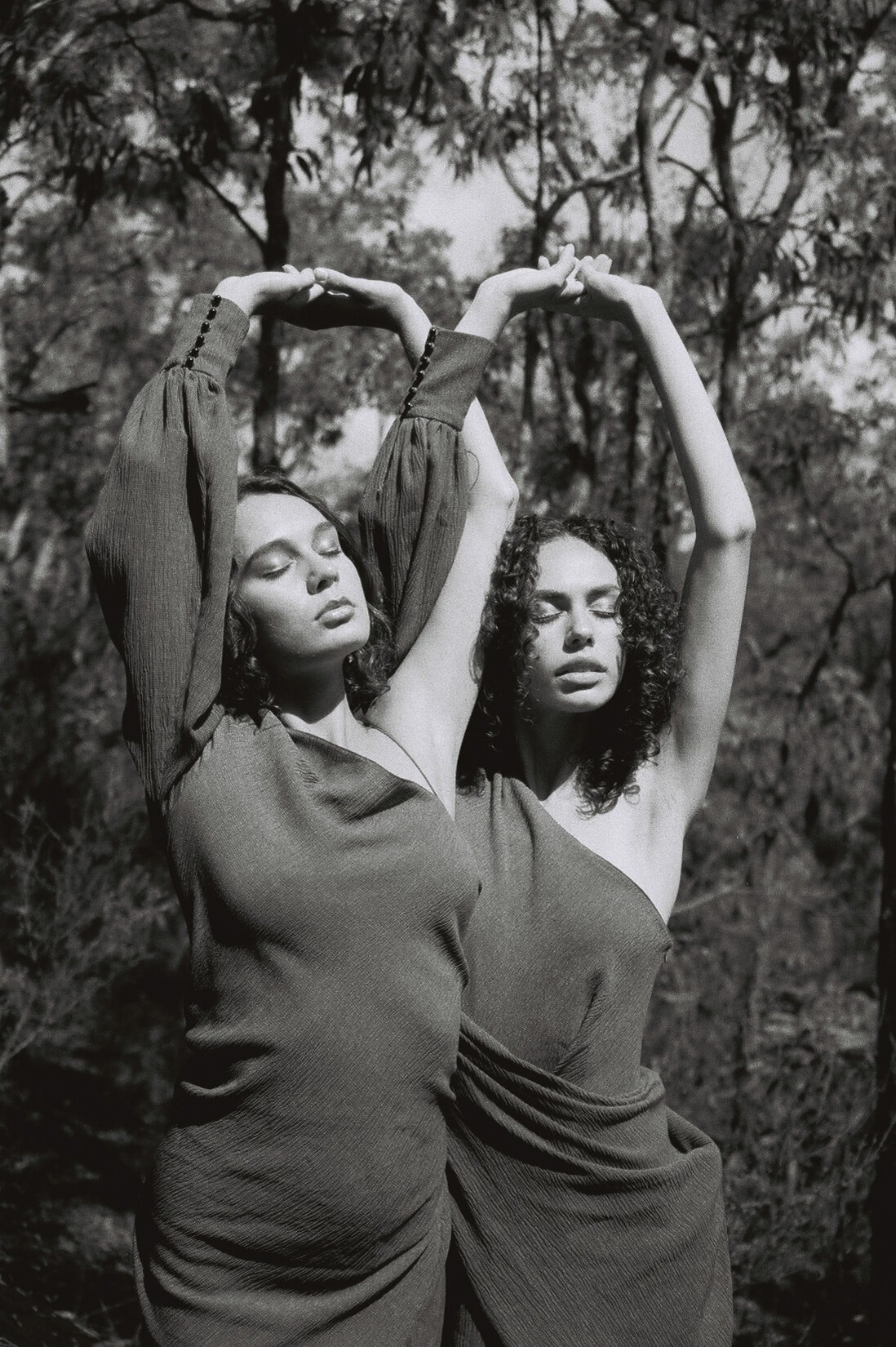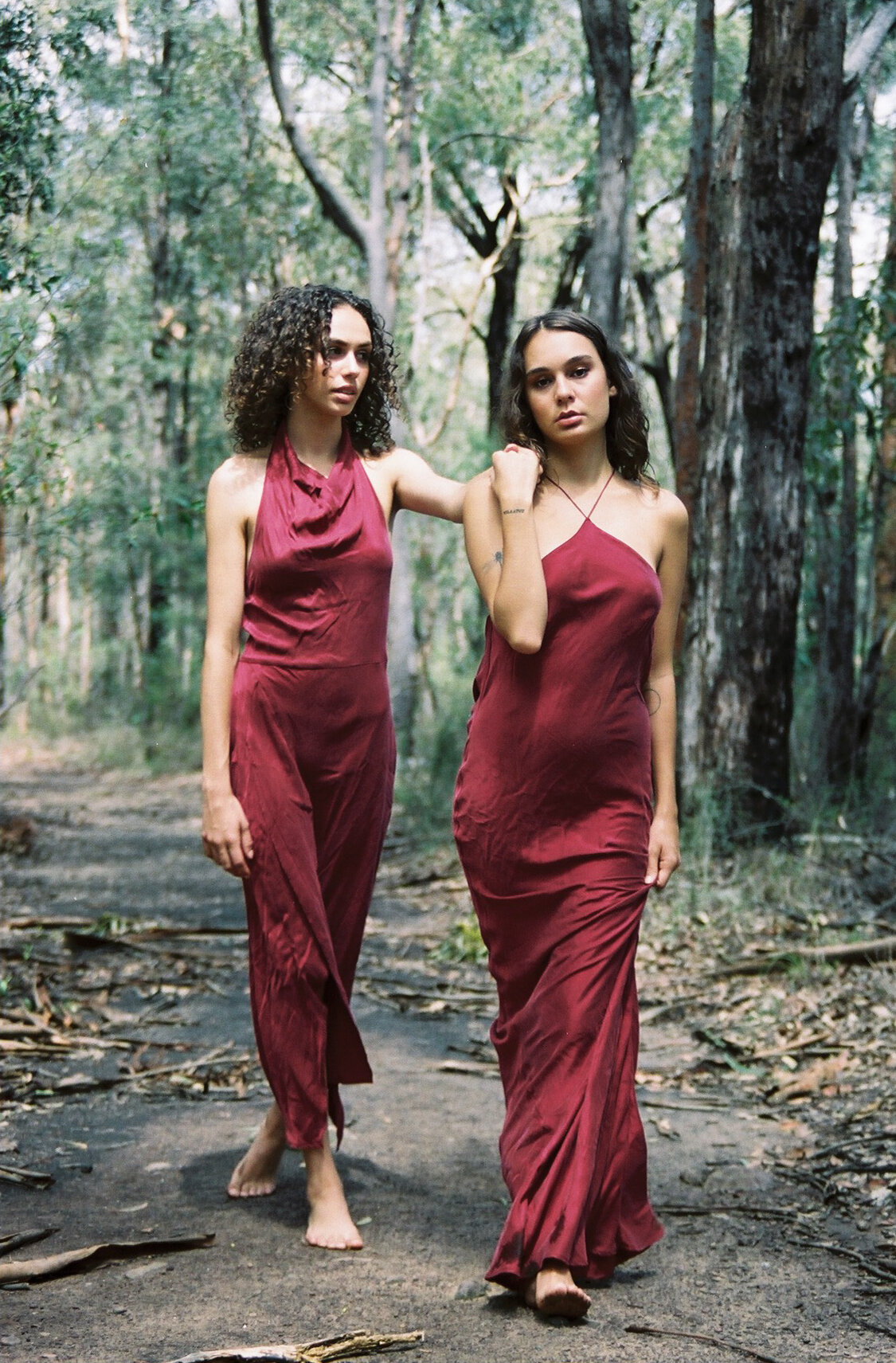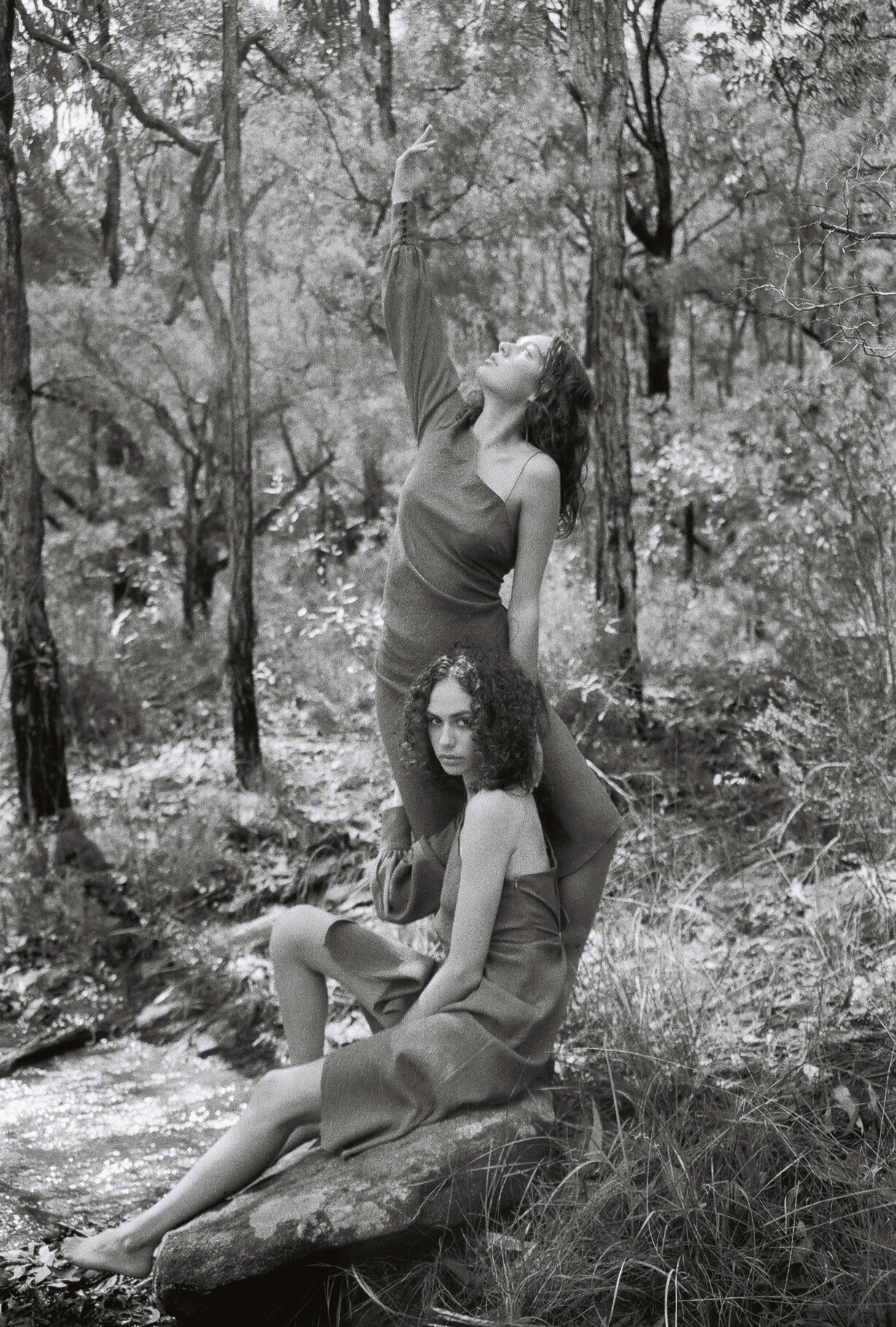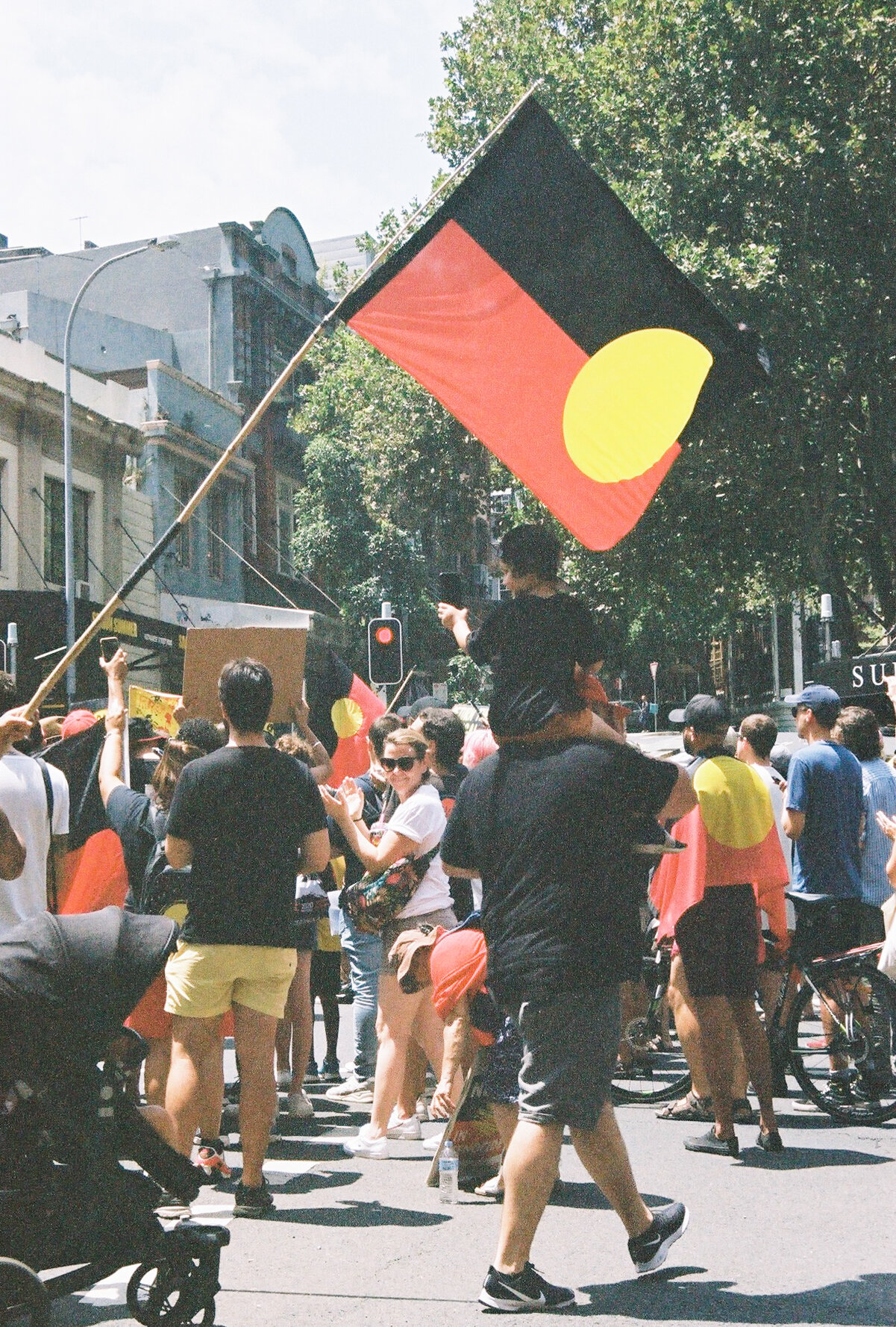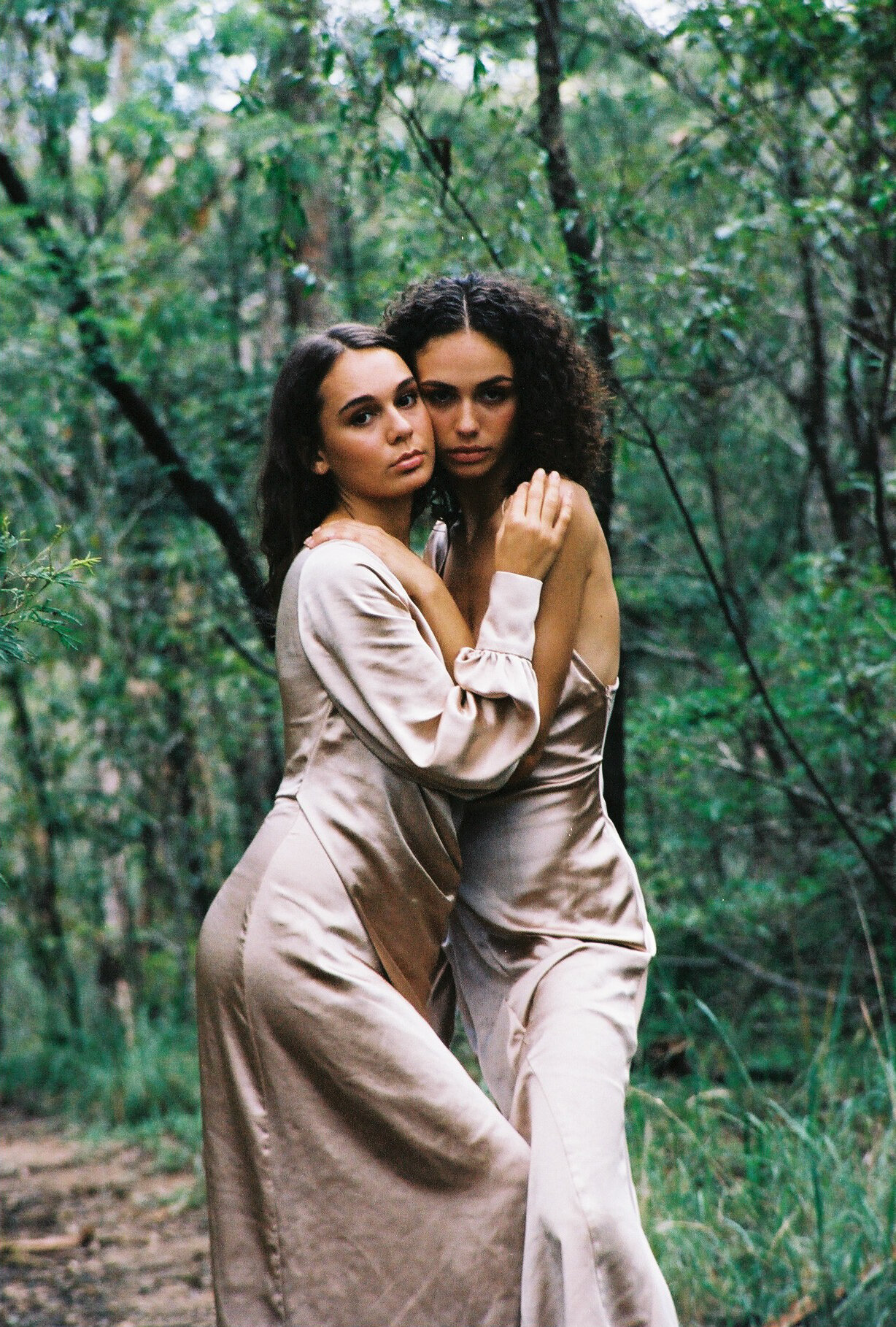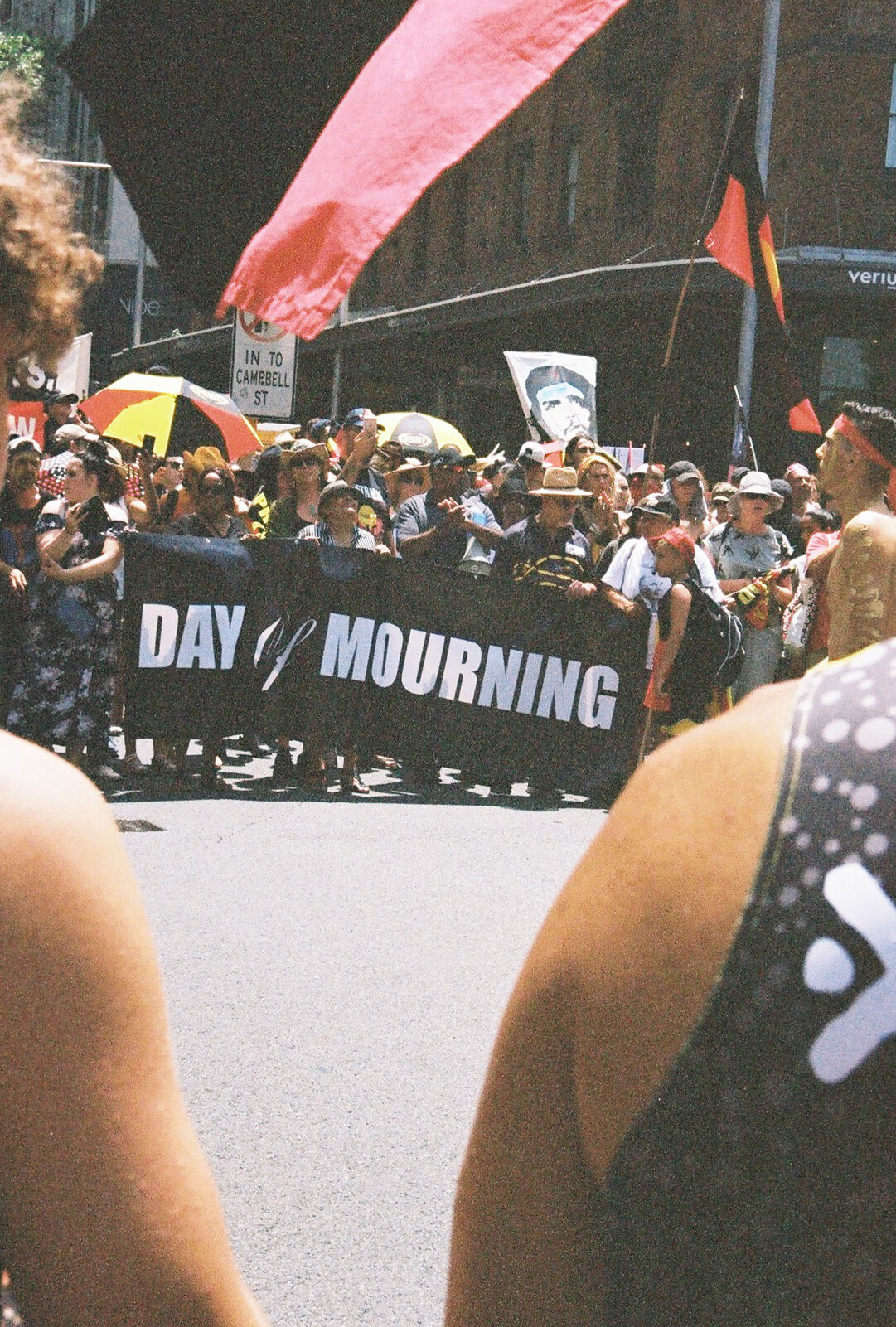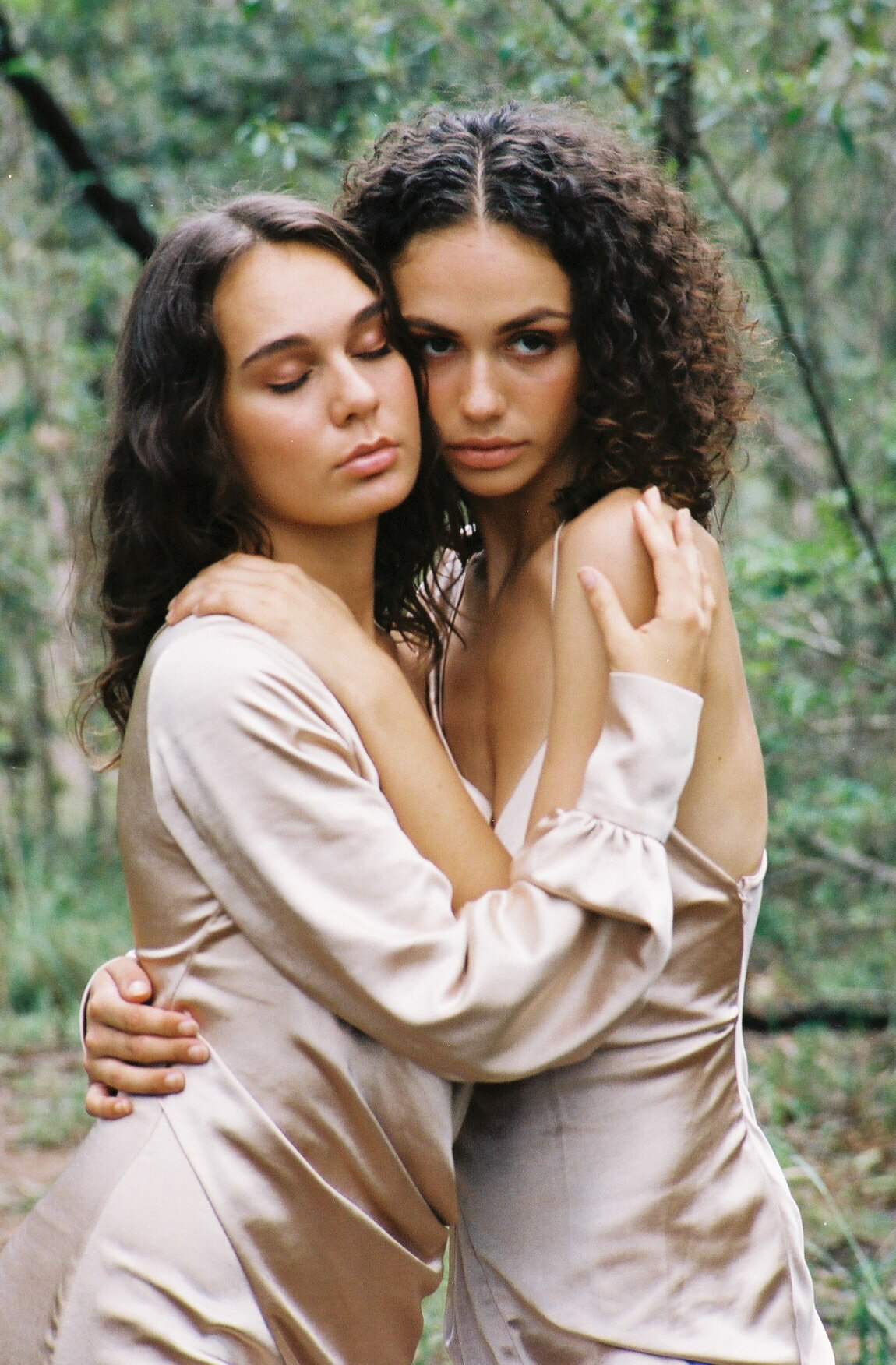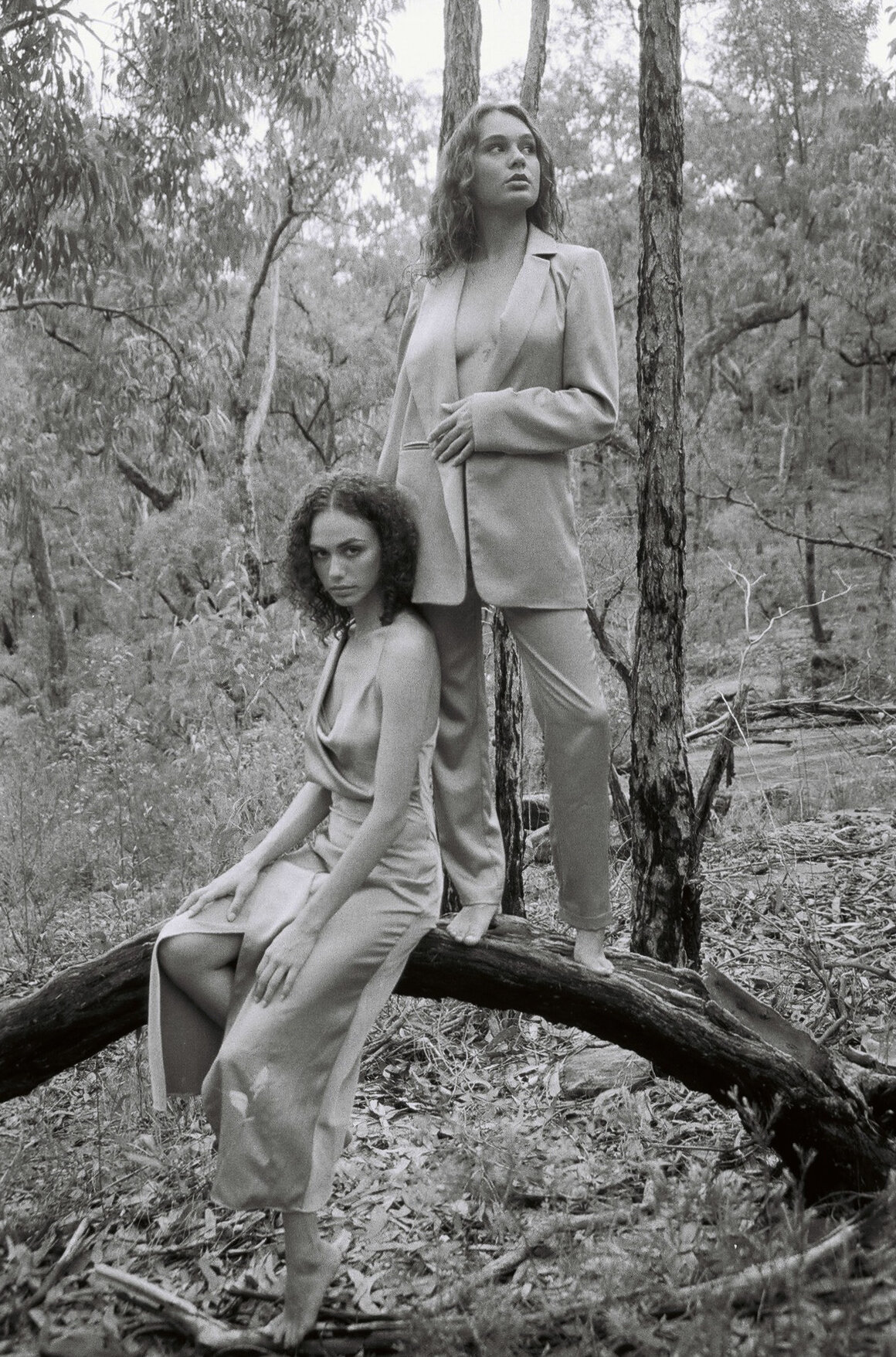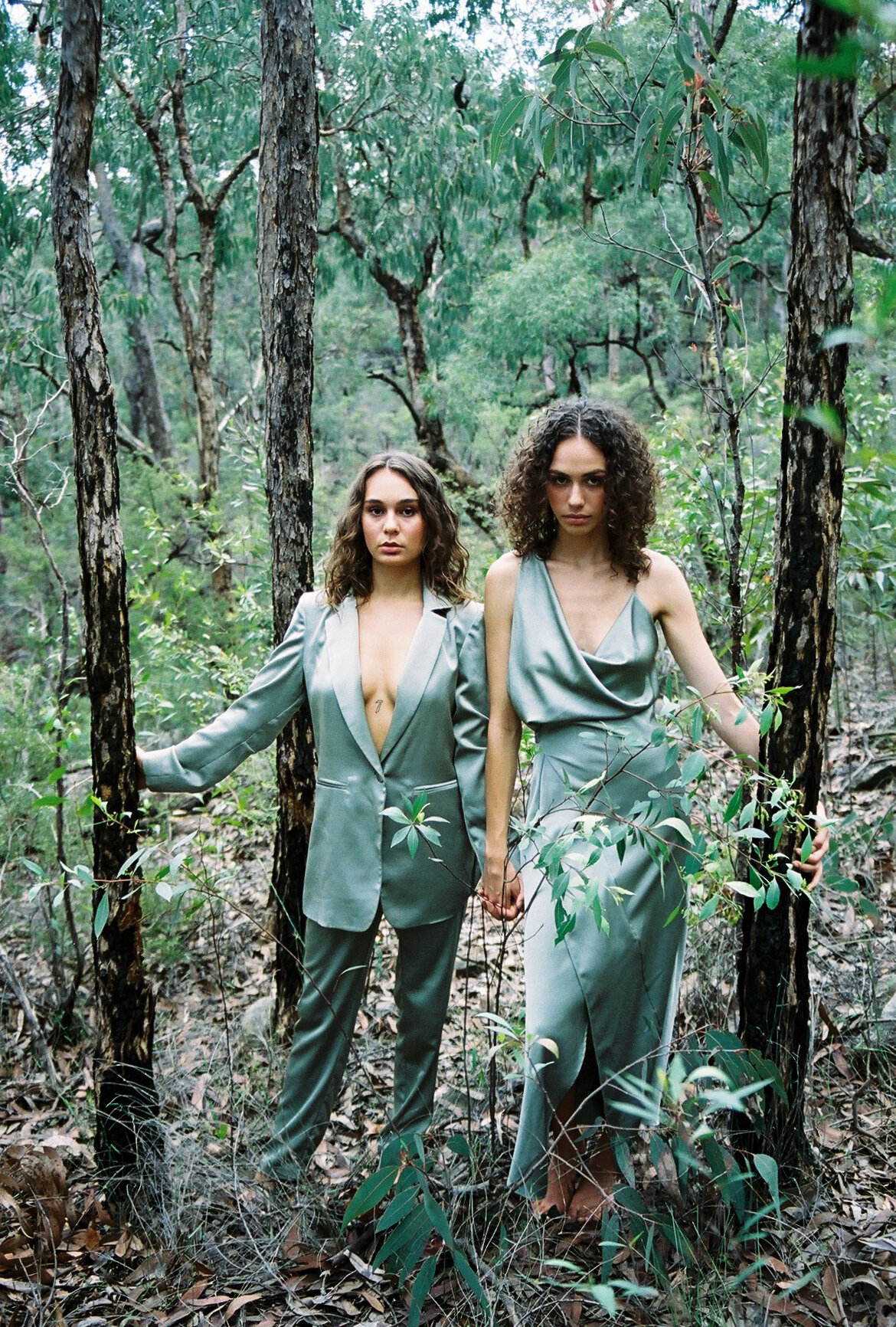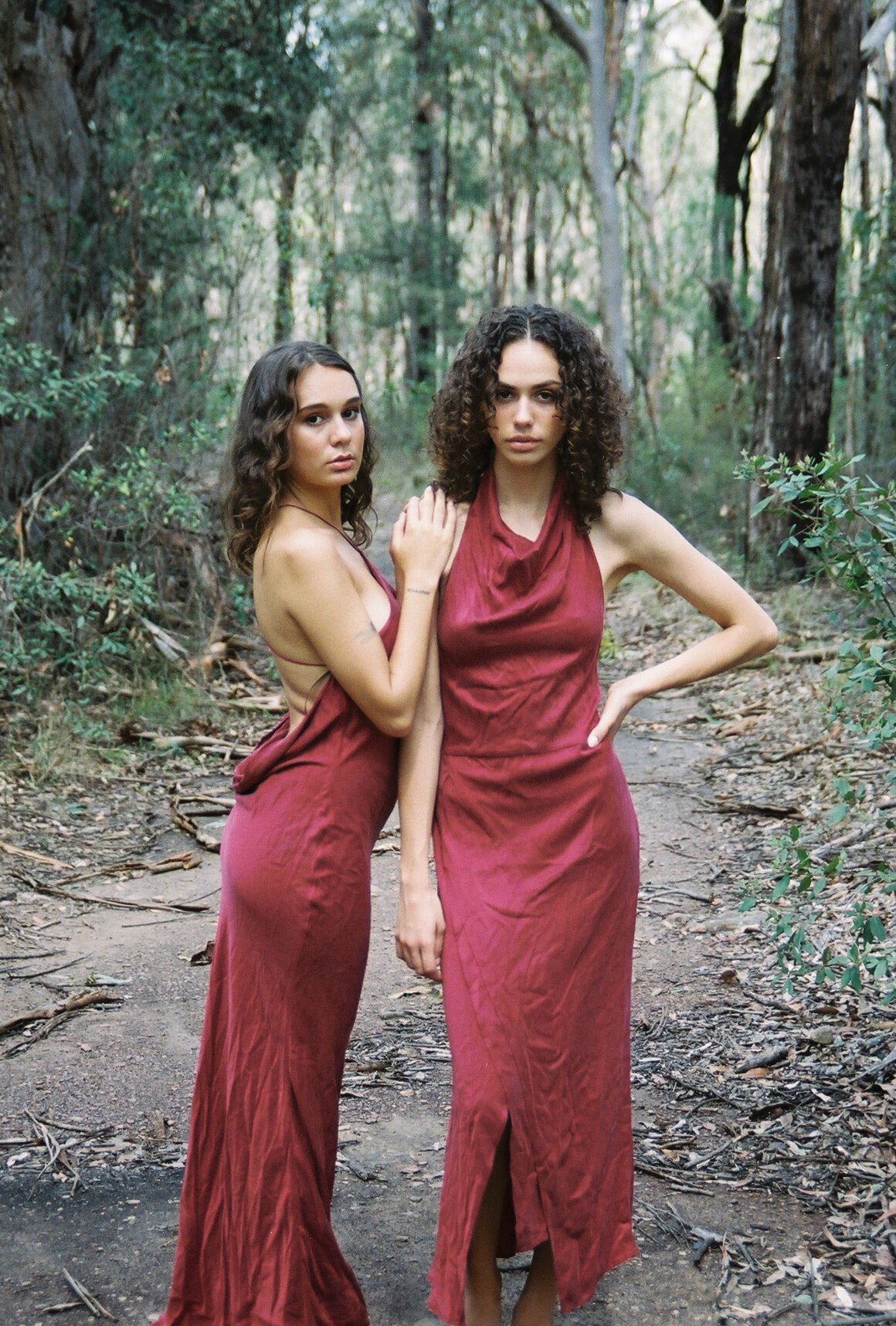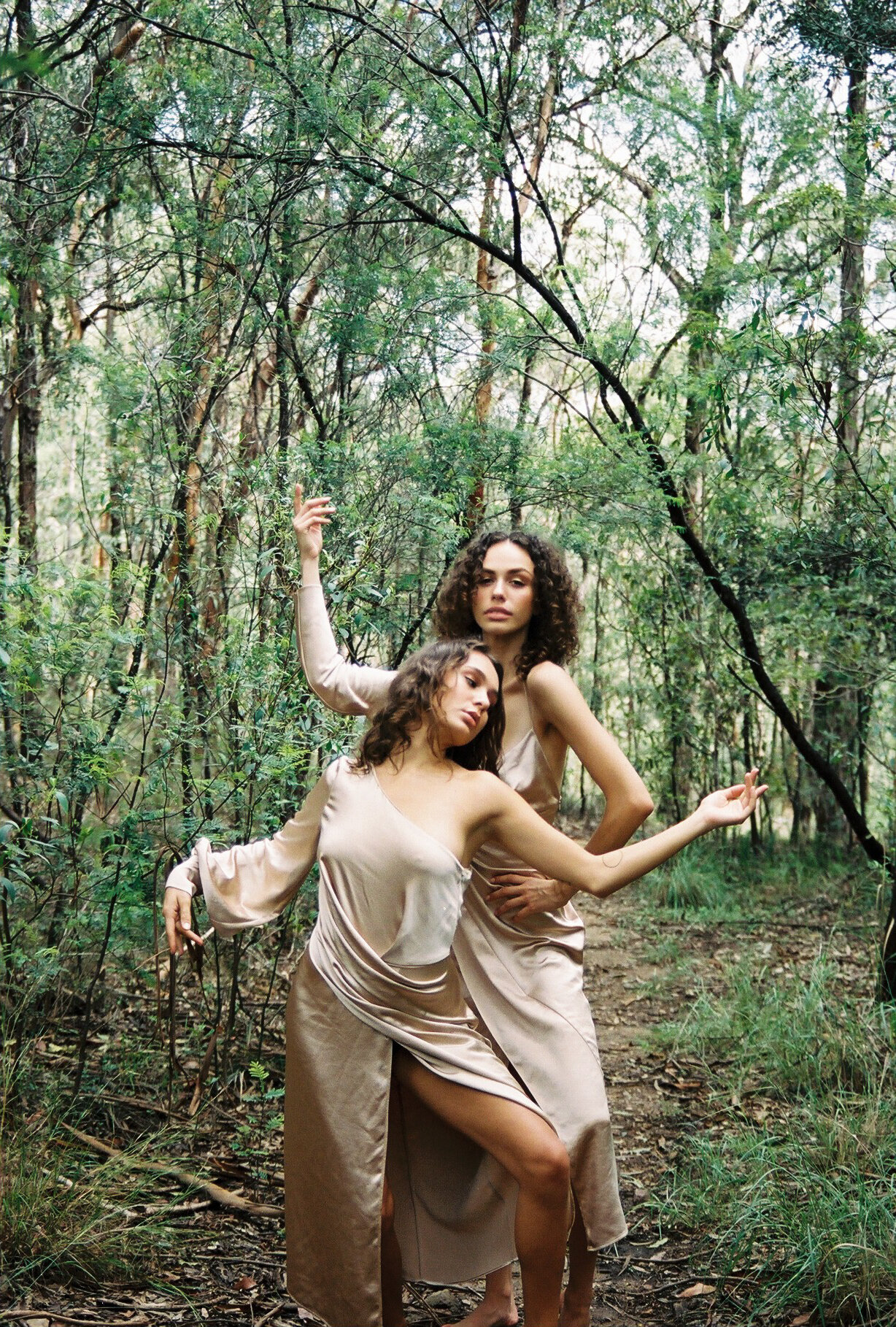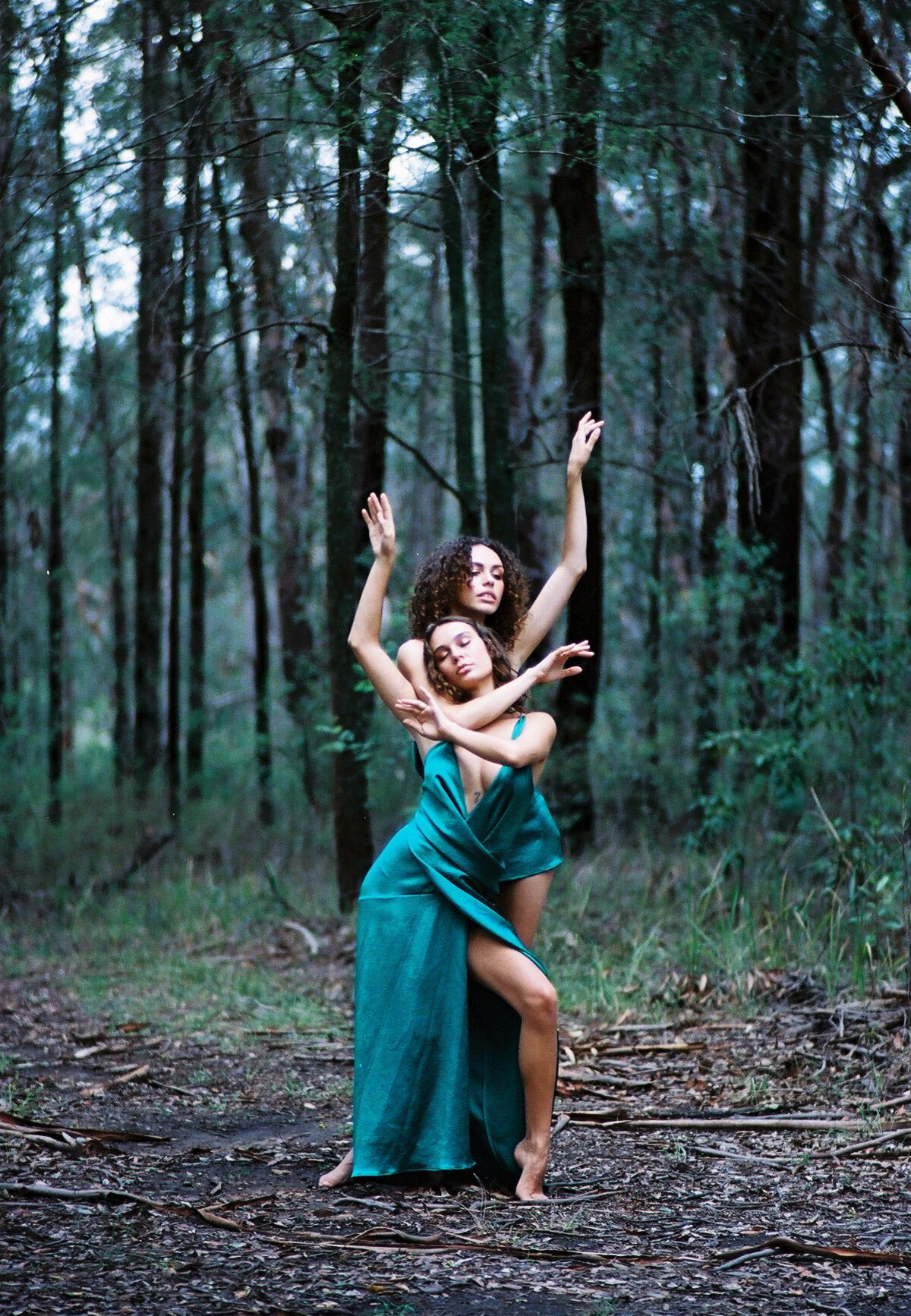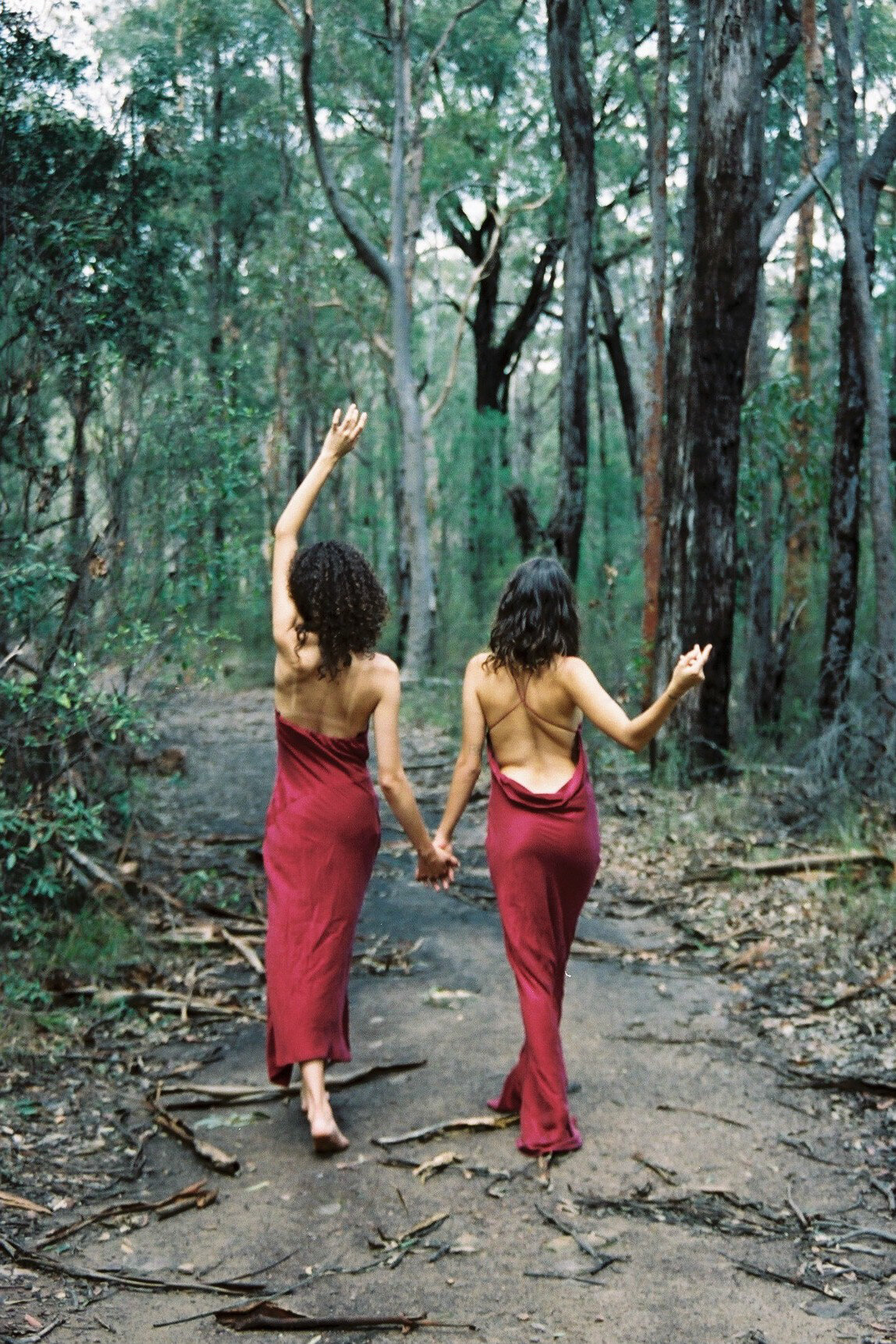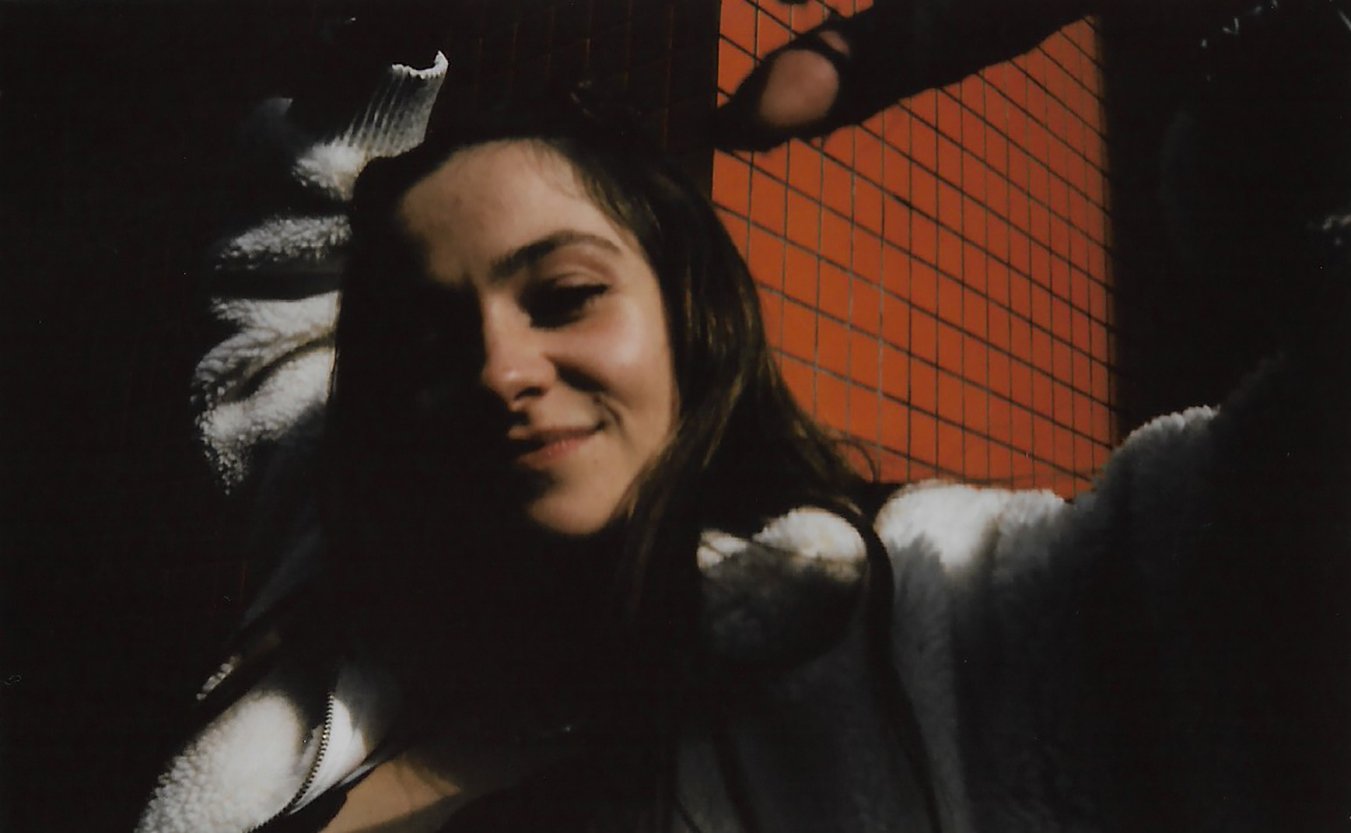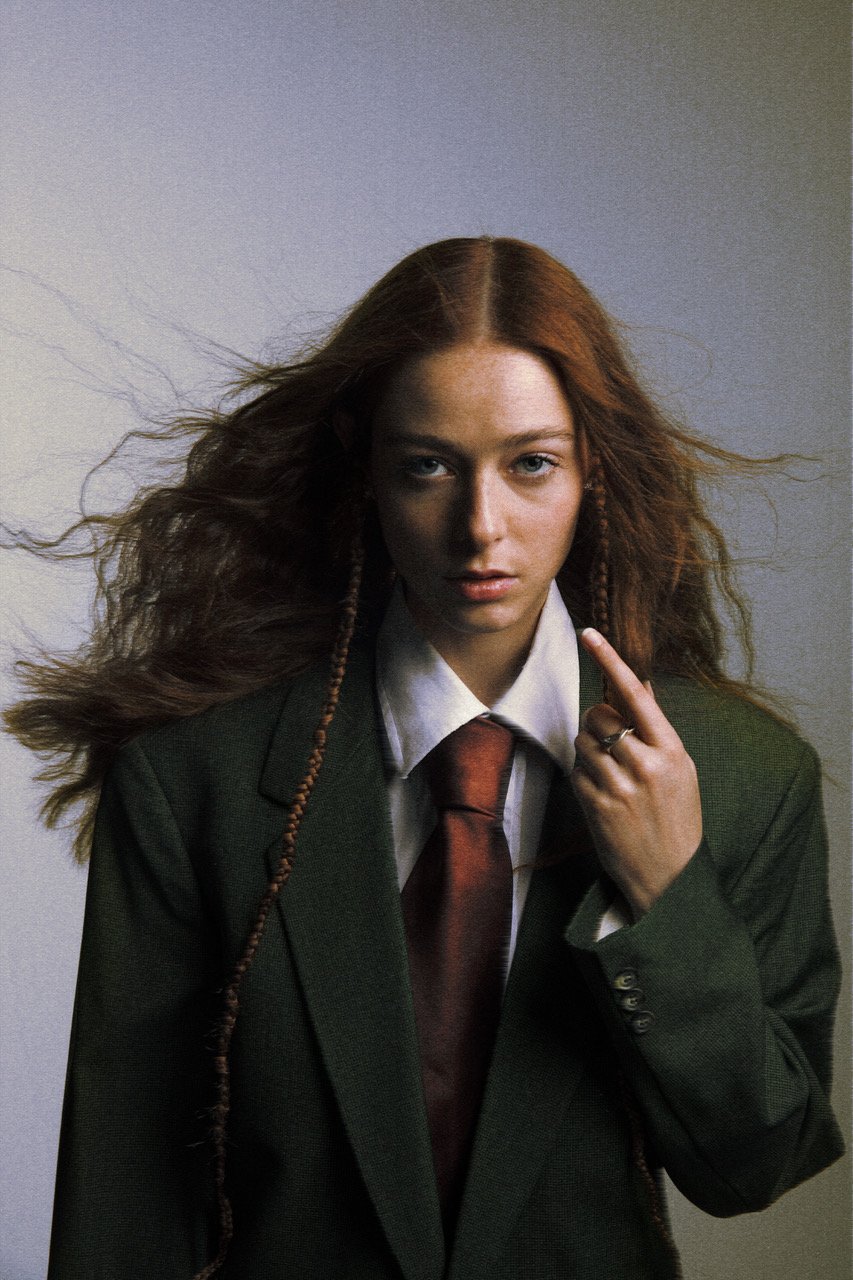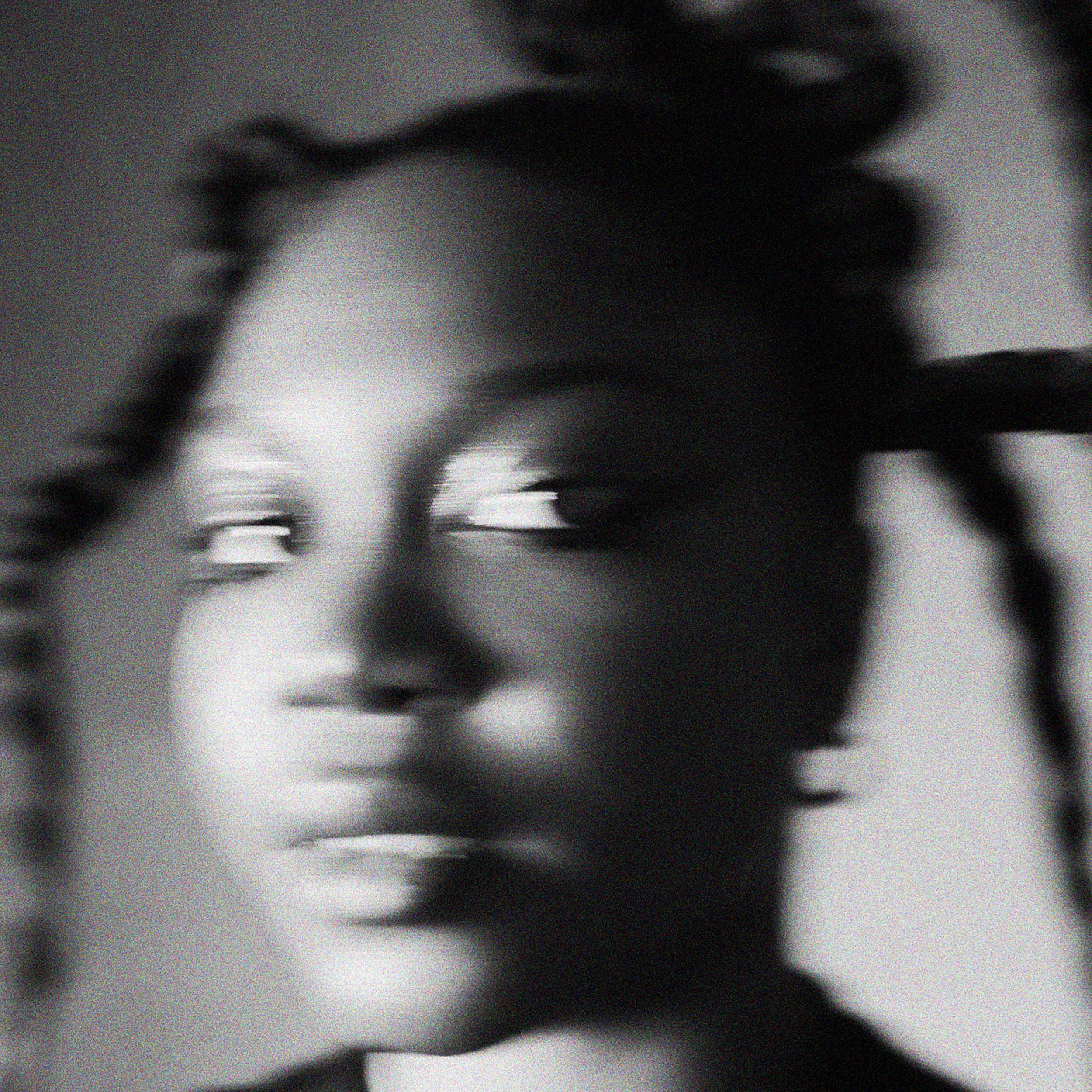DO YOU STILL SEE ME?
Norah Wells speaks to Indigenous models Sara Meiklejohn and Kiesha Bovill about their experiences of culture, identity & visibility in Australia.
Introduce yourselves! What areas/tribes do you belong to?
K: I’m Kiesha and I’m from the Kamillaroi tribe. I grew up on the Central Coast but my family originates from Walgett, NSW.
S: I’m Sara and I’m also from the Kamillaroi Tribe, my family on my mum’s side are originally from Moree in northern NSW, but I grew up on Darkinjung country on the central coast.
As young girls, did you find it hard to relate to your peers/feel as though you were treated differently because of your background?
K: 110%, in primary school I was the only Aboriginal girl in my class. I was always removed out of the classroom to learn about my culture so I always knew I was different and that my culture didn’t matter from the start. From as soon as I could remember, I felt segregated, especially in high school my peers would continuously make jokes about my culture in front of me while in the classroom.
S: I always felt different and had struggles with my identity because it felt like I was ‘too black for the white kids, but too white for the black kids’ because we are both from mixed parents. I remember kids and my friends making subtle racist jokes about my people, but I’d just laugh which led to internalised feelings of shame.
K: It’s the only race where people ask you ‘what percentage are you?’
S: It was such an uncomfortable experience… when marking the role people would have flags marked next to their name to make the teacher aware of if they had a learning disability or medical condition, I saw a red flag next to my name and in the comments it stated ‘Aboriginal’ as though the teachers had to be extra aware of the fact I was Indigenous, as if it were a learning disadvantage.
During school did you feel like the education around Indigenous culture was accurately represented/focused on heavily enough?
S: No way, I didn’t learn much about my culture at all and if I did it was from the perspective of colonisation onwards. I couldn’t understand how in International studies in year 10, we learnt about every culture and religion in the world but we learn about Aboriginal culture despite it being the oldest culture in the world. I think it’s extremely disrespectful and dangerous not to educate ALL Australians about the sacred history of the land on which we all live on, otherwise kids leave school with ignorant and uneducated beliefs about Indigenous people’s and culture... which doesn’t help create change.
K: Up until the age of about 11-12 my perception of my culture was really different. I grew up with my Non-Indigenous side of my family, so I celebrated Australia Day. Back then I didn’t even know that Australia Day was the day that Captain Cook invaded Australia, I thought it was just a day of celebration. Everything I know about my culture today I learnt outside of school. I went off on my own, educated myself about my culture, and asked my family about my history. It was a very confusing time for me to hear what that day actually meant after being encouraged for so many years by my school and the community I grew up in to celebrate the attempted genocide of my people.
What is the most important thing about your culture you feel is misrepresented?
K: I feel as though our identity is misrepresented, especially when it comes to the mainstream media. I think it’s really unfair, the picture that it paints of our people. As a country we need to recognise that to be living on land that holds stories that have been passed on for 60 thousand years and more is something to be so proud of and something to collectively embrace. We’ve only ever seeked reconciliation, it’s never been about revenge and I think that’s what people need to recognise about us.
S: It’s how much society could benefit from listening to Indigenous wisdom, knowledge and practices. Australia silences us at a time when they need us most, we are currently in a climate crisis of human survival because of colonialism, capitalism and white supremacy. My Ancestors didn’t survive and thrive for over 80,000 years for no reason, we hold the spiritual wisdom and knowledge of how to live in harmony with the land and each other. I feel like our ancient knowledge is misrepresented, disregarding us as irrelevant to creating a better society for this country.
In terms of what is publicly known as ‘Australia Day’, why is it important to you and your communities that this date is changed?
K: From personal experience I am appalled that I grew up learning about Captain Cook and not learning about Aboriginal people. I always knew I was Aboriginal, but because I grew up with my non-indigenous side of the family I never had that culture at home and I relied on what I was taught at school. So to me it’s important (to change the date) because this day is a day of mourning, that holds so much trauma. It needs to be a day of rest, reflection, silence and stillness. I see my Aboriginal ancestors who experienced the invasion as our soldiers, they deserve a day to be recognised, that they fought, and that we are still here, surviving.
S: For me, the date brings about a whole mix of feelings… loss, grief, anger, pain and frustration, it’s a reminder of the beginning of what my Ancestors endured and everything up until the ongoing trauma and injustices still happening to this day.
This date emphasises the pain I feel daily from the way this sacred country is being mistreated, used and abused. A lot of mob refer to this day as ‘survival day’, ‘day of mourning’ or ‘invasion day’, I like calling it survival day because as upsetting as this date is, it also makes me feel extremely proud to be me. We have survived attempted and ongoing genocide; we continue to stand proud and persevere... we are our ancestor’s wildest dreams. Personally, it’d be nice if the government recognised the pain associated with the 26th of January and changed the date… but it’s deeper than the date. It’s the mindset of non-indigenous Australia that needs to be changed... the ignorance, disinterest and apathy towards Aboriginal & Torres Strait Islander history and issues needs to change.
What are the biggest problems the Indigenous communities in Australia experience under our Government?
K: I think one of the biggest problems that we experience is the intergenerational trauma that has been passed on since colonisation. I think our health and wellbeing is so scary when looking at the statistics. Our men and our youth take the top spot in the world for suicide, which is so heartbreaking and the government don’t do anything about it. They don’t recognise us and who we are as people, my father was the first person in my family to be considered human when he was born and not flora and fauna like all my Indigenous family before him.
S: From ongoing land destruction to deaths in custody, there are just so many problems that affect us daily. Intergenerational trauma is a big one, because we are still trying to heal ourselves on top of the ongoing struggles a lot of Aboriginal people face today. We are systematically disadvantaged on our own land; the mental health and youth suicide rates is much higher when compared to non-indigenous peoples. The government doesn’t take into consideration how important cultural health is for our wellbeing, and they keep approving oil companies, mining companies and fracking companies to destroy sacred land, poison our waters and food sources just to make some money. Indigenous peoples are the main carers of the earth, yet the most oppressed and disrespected groups to exist.
Do you feel seen?
K: Growing up indigenous with my non-indigenous side of the family kind of automatically makes you feel not seen. My culture didn’t matter to any of them, so at the time it didn’t matter to me. Only in my early teens did I come to find that It’s the most important thing in my life, and only now that I’ve embraced my culture do I feel seen. Only now that I feel connected to my ancestors do I feel seen. The only way I feel seen is through spirit and through culture. I’m not going to be seen in this world, and especially not by the government. This system wasn’t built for us, its fucking hard, and so lonely for some of us. We have broken families, or come from two different worlds. I’m so blessed that with my modelling platform that I have now, I’m starting to find my voice and people are starting to hear me. This is the reason I’m doing this whole modelling thing, one reason is because I love it, but also because I want people to see who we are, and I’m going to push myself until people see that I can be seen as an Aboriginal woman and that I can make it in this system even though it’s not structured to fulfil me and my people.
S: Do I feel seen? I do so by my Ancestors, this land, spirit and my community… Do I feel seen by the broader Australian society and media? No, not really. I always feel like my culture, identity and people are always pushed aside as not important or relevant to this day in age, which couldn’t be further from the truth. I also feel like when I’m vocal about my beliefs and identity, white Australia will do anything to invalidate that because I don’t fit the description of what they deem a real Aboriginal’ to look and be like. I also relate to what Kiesha was saying... When having to live with my non-Indigenous dad and step mum throughout high school, I didn’t feel seen and my ancestry almost felt like something to hide unless it got me access to programs.
As more and more awareness is drawn to ‘white privilege’, for people that want to exercise this to benefit or help your communities but aren’t sure where to start, what would you suggest for them?
K: I would suggest that you take the initiative to go out and explore our culture for yourself. It’s not our responsibility to teach you, but we can give you the resources to help you. On our big indigenous events for example our Reconciliation Day or NAIDOC Week, we hold a lot of events in communities where we have info tents and you can talk to members of the community. It’s a good way to start learning about our culture as you’re never going to get the same connection and information online as you are when you’re talking face to face. Follow pages that are relevant to black culture so you’re actually consuming resources and media that will educate you, it’s really about switching your perspective and what you tune into.
S: Showing up bit by bit every day is what’s most important I feel, speaking up when a mate says something ignorant or racist, showing up to rallies and helping spread awareness for issues, events and ways to support mob. Using your privilege to de centre yourself by truly listening to Indigenous voices and allowing them to speak, be heard and lead the way. We are only 3% of the Australian population so we need as many numbers and allies to stand in solidarity with us when it comes to fighting for justice, equality, our people and the land… If we want to live in harmony with the land and each other, it is non-indigenous Australia’s responsibility to recognise that Aboriginal and Torres Strait Islander history is all of our history. Non-Indigenous Australians should also take the time to educate themselves on the land, mob and stories of the land on which they live on.
What are your fondest memories of growing up in Aboriginal families?
K: I grew up with my mother who wasn’t indigenous, my parents split before I was born, so my early childhood was growing up knowing that I was Aboriginal but not knowing what that meant. This is such a common thing for a lot of Indigenous kids that grow up without their Indigenous parent, we lose our identity. Reconnecting with my father and his family as I grew older really helped me embrace who I was and helped me be stronger in my skin. I remember on the rare occasion that I got to visit my Dad’s family as a young girl, my older sisters and brother would teach me about my family tree, my tribe and my totem, I loved spending time with them cause that was really the only time I got to embrace who I was.
S: I was raised by my single Aboriginal mother on Darkinjung country (Central Coast NSW) and all our family, aunties, uncles and cousins live in Northern NSW and QLD. So, I didn’t really get the privilege of growing up with a big family full of culture. Just like many other Aboriginal and Torres Strait Islander families, mine has a lot of mental health issues, resulting in dysfunctional families, abuse, disconnection, drugs and alcohol. I was then separated from my mum at 13 and had to live with my non-indigenous father and stepmother, it was difficult for me in terms of identity, belonging and culture. I’d say my fondest memory would be forming a relationship with my Ancestors and country, knowing they’re supporting, protecting and guiding me.
Have you ever experienced negative behaviour and/or racism as a result of being Aboriginal? If yes how did this make you feel?
K: I have, it’s a norm in my life. Sometimes it feels like everyday, and sometimes not at all. I don’t feel protected, out in public and I never know when it’s coming, but I’ve just learnt to embrace it because that’s who the hell I am. I used to have a negative reaction towards racists comments and thought it was my responsibility to educate them to prove them wrong, but it’s not. Now I choose to ignore the haters because if I’m giving my energy to them, then I’m losing sight of who I am and what I’m here to do which is encourage people to embrace our culture. I’m proud of who I am. I think racism is a form of people feeling threatened by that.
S: I definitely experience subtle racism and ignorant remarks, but nothing as intense as it would be for my darker brothers and sisters. It doesn’t feel good being treated differently by people who don’t even know you but have already made assumptions.
I think the negative behaviour I experience a lot is people always questioning my identity and me having to explain myself and always be a source of information for something someone could just easily google… I wish people understood that Indigenity is not something you choose to be, it’s just something you are and feel, it is a culture, not a skin colour. I always get told “oh but what are you? You’re too pretty to be aboriginal” “but how much percent are you really?”
These common ignorant comments are frustrating and can be emotionally taxing, but I’m used to it.
Diving into connection to the land, do you think the bushfires have heavily affected your people? If so do you think more so emotionally than physically?
K: These bushfires have affected us. But I also see a shift in Australia’s perspective of Aboriginal people and how we looked after and managed the land to prevent catastrophic bushfires like this from happening. It’s such a sad way for non-indigenous Australia to finally recognise what we are doing to this planet, but it just goes to show that it takes our country to burn for people to see what we have been fighting and protesting for the past 250 years. Yes this has affected us, and the outcome has been devastating, but I see change.
S: The pain fire victims would’ve felt from losing their homes, is the same pain Indigenous people feel every day watching their country (home) get destroyed and misused... And these fires are just a manifestation of the ongoing mistreatment and mismanagement of this land at the hands of our “government”. So yeah, I definitely feel these fires have affected mob both emotionally, spiritually and culturally. I can’t imagine the pain felt by watching your traditional country and sacred sites being burned away, especially when knowing this could’ve all been prevented if people listened to us.
What is something special about Aboriginal culture that you feel not many people know about?
S: That we are not the stereotypes the media makes us out to be... we are so loving, so forgiving, so compassionate, and so open to sharing our cultural and spiritual views with everyone. We have so much wisdom and knowledge about living with the land and each other harmoniously, and I just wish more people knew about that and made the conscious effort to learn more about it.
Muses / Sara Meiklejohn and Kiesha Bovill Words & photography / Norah WellsMakeup Artist / Jessica ZautsenCloset / One Fell Swoop via Portobello PR

